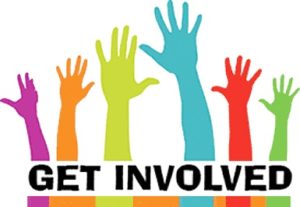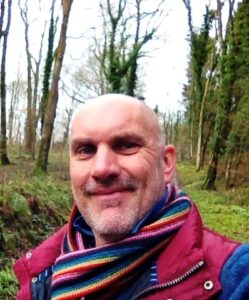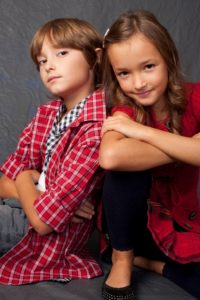Every day during National Adoption Week 2018, we have invited a guest blogger to share the highs and lows of their adoption journey, exploring the different ways that adoption has changed their family life.
Please note, all content published in this section is provided by our guest bloggers, based on their real-life experiences.
We invite you to discuss these blogs via PAC-UK's Twitter profile and ask you to tag @PACUKadoption in to your posts and include the National Adoption Week hashtag #SupportAdoption
In line with First4Adoption's National Adoption Week 'the qualities and attributes that make a great adopter and the joys and challenges they face' theme, this week's guest bloggers are all adoptive parents. Following National Adoption Week we plan to start a regular 'guest blogger' feature and would love to hear from adoptees, birth parents (and relatives), adoptive parents/carers, special guardians and professionals who are interested in taking part. If this interests you please email press@pac-uk.org
- Monday - Helen Oakwater on 'How to avoid disappointment and gain satisfaction and joy in parenting children with early trauma'
- Tuesday - An adoptive parent and NVR trainer, on parenting a child with behavioural issues
- Wednesday - Gay adopter Nick Adams-King’s quest to delight his eight-year-old daughter in 'Adventures in Nail Polish'
- Thursday - An adoptive parent (now-grandparent) on the triumph of breaking the cycle of early trauma
- Friday - Sally Donovan OBE on 'Deeds, not Words: An adoptive Parent’s Letter to the State'
- Saturday - An adoptive parent on the beautiful bond and simmering tensions between adopted siblings
- Sunday - Adoptive Dad, Gary on 'The challenge of parenting damaged children: in praise of emotional resilience'
Monday - Helen Oakwater on 'How to avoid disappointment and gain satisfaction and joy in parenting children with early trauma'
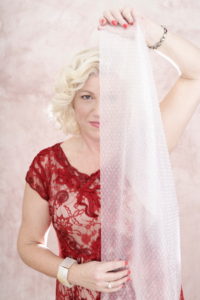
Helen Oakwater is an international Trainer, Speaker, Coach, author of Bubble Wrapped Children and adoptive parent.
“This is not what I signed up for” I silently repeated.
Maybe when looking at the self-inflicted cuts on my daughter’s arms. Possibly when another twenty quid disappeared from my purse, or when listening to more lies. Definitely when scrabbling on all fours, filling five bin-liners with furry food, soiled underwear, dead vodka bottles and unidentifiable sticky bedroom trash.
I did not understand that ‘adoption’ meant trauma would walk through my front door on six little legs.
I expected ‘normal’ kids with some attachment problems, whom my love and parenting skills would transform. 25 years later I know better.
How did I survive? I changed my expectations. Eventually. Frequently. Massively.
I learned about child development, what’s normal, what’s not. How maltreatment distorts their inner world, how their brains are damaged by a boozy womb and that beliefs drive behaviour. This cocktail of knowledge explained ‘nonsensical’ actions.
A useful enquiry is: ‘does this child have the capacity, right now, to meet my expectations’?
What’s easier? Changing the child’s capacities or your expectations?
Spoiler alert ... it’s you.
Until you change; the child can’t (can’t - not won’t). Their behaviour is fear-driven and your first job is to help them feel safe in their own bodies. All that self-regulation stuff they should have absorbed from attuned caregivers as babes.
In a lightbulb moment in 1999, I realised that traumatised children had, in infancy, used metaphorical bubble wrap as a protection against maltreatment. Historically useful, but now it distorted their view of the world and the world’s perspective of them. Our role is to gently peel back the bubble wrap and fill the developmental gaps.
When my kids first arrived - aged 5, 4 and 2 - they liked ‘playing babies’, as I pretended to wipe bottoms and bottle-feed. It was exhausting. Once I thought it must be lunchtime, but the clock shockingly glowed 09.40. The youngest (genuinely in nappies) frequently became distressed seeing her siblings receiving this ‘nurturing’. Regrettably, I used this as my excuse to stop.
They were showing me how below the bubble wrap they needed ‘babying’ to fill their voids. Because I was expecting my kids to adhere roughly to their chronological age, I missed a huge healing opportunity. I also learned that:
Expectations exceeded = noisy, positive celebration. Joy.
Expectations matched = quiet, neutral contentment. Satisfaction.
Expectations unmatched = heavy, negative disappointment. Sadness.
I learned that I could choose the height of my expectation bar and hence my emotional state.
Expectations are images we created in the past about how things should be in the future. The more detailed the construction (how it looks, sounds, feels), the greater your commitment. This is really useful when it’s 100% in your control, however there is a great potential for disappointment when it’s in another’s hands, especially tiny ones.
That’s why ‘to succeed’, we must adjust our expectations throughout the adoption journey and be life-long learners.
That’s why constantly updating our knowledge by reading, attending courses, peer support, mentoring and becoming trauma-informed therapeutic parents with a realistic view of a child’s potential is vital.
That’s why continual personal evolution, enhanced regulation skills, self-reflection, transforming limiting beliefs, increasing self-esteem and being a congruent, creative, compassionate, courageous, adaptive person with realistic expectations is vital.
What are you expecting? Joy, satisfaction or sadness? Your choice.
Helen Oakwater is an international Trainer, Speaker, Coach, author of Bubble Wrapped Children and adoptive parent. Helen is also the founder of FAB Parents.
Web www.fabparents.co.uk | Twitter @HelenOakwater
Tuesday - An adoptive parent and NVR trainer, on parenting a child with behavioural issues
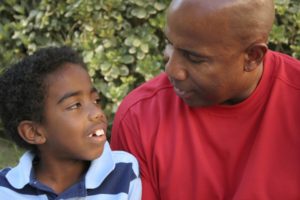
Find out more about PAC-UK's CPV Services (including CPV Parent Groups underpinned by NVR) at www.pac-uk.org/cpv
My husband and I have four children; the first three are biological and our youngest is adopted.
Our daughter came to us in 2006, when she was just under two. We’ve known her since she was conceived; as she is my goddaughter (my friend is her birth mum). She is thirteen now.
Adoption wasn’t an easy road for us. Sadly, the bad behaviour started from the moment she moved in. I started looking for outside help very early on, as her behaviour across the board was really challenging and the placement was in jeopardy.
I did NVR (Non-Violent Resistance) training in 2013, as PAC-UK sent out a training leaflet, as I was attracted by the word ‘violence’ – this is because violence is what we were experiencing. It was a one-day training course, and I was taken aback by how many people were there, experiencing what I had experienced. I was heartened that we weren’t the only family suffering this.
The principle of NVR struck a chord with me as I realised her behaviour wasn’t coming from a naughty place, but coming from a traumatised place.
It was an important moment for me, because at last I had found something that was going to work with her.
Standard parenting – as I did with my other children – was not working with her. In fact, it made things deteriorate. I immediately set about using the tools. My husband wasn’t there right at the start. He was like, ‘Oh, this is a bit odd, I’m not sure about this.’ But he could see that this was working and as soon as I could, I got him along to an NVR parent guidance day.
I invited both my husband and my parents, because they are key figures in our family life, with a more traditional parenting style, and also because they had been physically attacked by our daughter.
The key thing we learnt was that if we changed our behaviour as adults, it would bring about change in our child. We learned about NVR concepts like baskets – which, in essence, are choosing which behaviour to tackle, in order of priority. We had been doing rewards and punishments – then we took away punishments and replaced them with reconciliation gestures, it melted her a bit, and let her really understand that we were there for the long haul.
The NVR groups, which are attended by a number of adoptive parents experiencing child-to-parent violence and aggression, are a lifeline for many.
We’ve also benefitted from post-group online support. Having a WhatsApp group where parents can say some strong things about their children without anyone thinking that they don’t love them, where they are able to let off steam, is invaluable.
There is something very powerful about not being the only person in isolation, trying to tackle this kind of behaviour.
Child to Parent Violence (CPV) is a serious issue for many families, which is often misunderstood or overlooked. It can be a difficult and seemingly impossible task for parents and carers to acknowledge that this is happening in their family. Find out more about PAC-UK's CPV Services (including CPV Parent Groups underpinned by NVR) here.
Wednesday - Gay adopter Nick Adams-King’s quest to delight his eight-year-old daughter in 'Adventures in Nail Polish'
Hello. I’m Nick, I live with my husband James in the New Forest and nine years ago, we began our adoption journey. First a son, now 12, and then a daughter, now 8.
I’m very lucky to have had a varied and interesting life. I’ve done some very cool things, mixed with celebrities, travelled the world with business and had a successful career in politics. Nothing though has been as cool as parenting our children. Except…
The thought of having to deal with hair and make-up fills me with terror.
I also recognise absolutely that, having made the decision to adopt our daughter, engaging with all things girlie came as part of the package.
So, finally giving in, we went to the chemists the other day with the sole purpose of purchasing some "pale and unobtrusive" nail varnish.
"What does pale and unabusive mean, Daddy?" Was the answer I received when I told our daughter that, hoping to manage expectations.
"It means that Daddy gets to choose what we buy darling," I replied. Bottom lip poked out somewhat. Hers. Not mine.
"But I want bright, sparkly nail polish!" Our daughter responded.
"We'll see what they have," was my diplomatic reply.
There is a point children reach where they understand that any answer their parent gives beginning with the phrase "we'll see", actually means 'no'. Luckily our daughter hasn't twigged to this yet.
Having no idea where to go, I chose our local branch of Superdrug.
Having never actually been in Superdrug previously, I made the choice entirely based upon the enormous amount of gaudy make-up displays visible through the windows. This and the steady stream of prepubescent girls I had witnessed exiting clutching their little pink bags, presumably filled with a range of pocket money-priced cosmetic delights.
You've most likely walked into a shop to buy make up before. I hadn't.
There's tonnes of the stuff.
An entire wall of the shop comprised massive shelves full of different ranges of lipstick, lip gloss, nail varnish and other - err - cosmetic stuff.
Not only were the shelves extensive, high and long, very, very long. Their contents were all small, really small. Tightly packed. The whole creating a seemingly impenetrable, shimmering wall of pink and purple.
Our daughter and I stood. Hand in hand. Staring. Bemused. Mesmerised by the sight.
A friendly sales assistant nearby took pity. "Can I help?" She asked.
With the fervour of the dehydrated desert traveller reaching a cool oasis, I grasped the opportunity. "Yes, please. We need nail varnish.
“For her”, pointing downwards, "not me."
The sales assistant smiled indulgently. "I'm assuming not too bright, not too expensive," she whispered conspiratorially. I nodded.
"I bet you'd like some really lovely pink nail polish," the assistant said, kneeling to address our daughter at face level. "Come with me," she said, bustling towards the back of the shop.
In a brisk five minutes, interspersed with whispered asides, our daughter and I were led by the kind sales assistant on a whistle-stop tour of the both Superdrug's extensive cosmetic section and the entire process of painting and removing nail varnish.
Clutching our appropriately gaudy fluorescent pink plastic bag, we made our way home.
Having never seen anyone put nail varnish on, I have to say our daughter did a very good impression of the customer at a nail bar.
I painted the nails. She flourished her hand dramatically, keeping the fingers rigidly claw like as she waved them about, blowing on the newly applied varnish.
We did OK. It was a bit uneven. But it looked OK.
I heaved a sigh of relief.
"Can we do my toe nails in a different colour, please Daddy?" Our daughter asked.
It's never going to end is it?
Nick regularly blogs about his adoption journey on his brilliant 'Nick King's World' website.
Web & blog www.nickkingsworld.com | Twitter @NickKing
Thursday - An adoptive parent (now-grandparent) on the triumph of breaking the cycle of early trauma
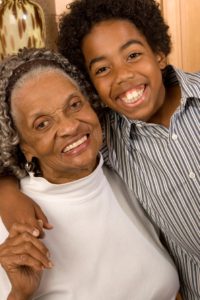
PAC-UK's Child and Family Service provides specialist therapeutic support for children and families brought together by adoption or other forms of permanent placement.
Last April, we received the gift of a second grandchild, sister to our five-year-old grandson. There is nothing unusual about families growing and parents becoming grandparents, except that these two children are really special on two accounts.
We adopted their mother, our daughter, when she was three and already a broken little girl. Life wasn't easy from the beginning, because she was a damaged child and already had a very low self-esteem. But she was strong-willed and courageous and we put our all into bringing her slowly to self-love and to a meaningful and loving attachment to us.
Difficulties of different kinds followed her growing up during primary school but by age 11, with love and encouragement, she had surmounted difficult 'hills' in her life. Secondary school brought, however, a powerful storm of feelings and emotions, confounded in Year 8 by a virus, similar to the one that causes ME, that took her physical strength away.
By Year 9, we had to look for help, as she started to self-harm. That was the point at which we turned for advice to PAC-UK. PAC-UK was an enormous source of help both to us and our daughter. They arranged for a psychiatric assessment, following which our daughter went into psychiatric care, which she needed because of deep depression.
For over ten years, we experienced very dark times, because of her difficult behaviour and eight suicidal attempts followed by lengthy hospital stays. The hospital treatment varied in the main from poor to dire. It was an exhausting time as, apart from the worry about our daughter's safety, we had to fight to get good treatment, which we got eventually, when she was 18.
Psychological and emotional help, and the grounding of our Christian faith, worked in all of us little by little and love and light broke through, and our daughter started to rebuild her life in her early twenties. (In fact, without our Christian faith, I think we would have collapsed at one point!)
She is now a beautiful, loving mother to our two grandchildren. She says that the wound of her first three years is still there, but that her own efforts, unconditional family love and support, help from PAC-UK and psychiatric treatment helped her to come to the point where she can deal and cope with it.
We are not the biological grandparents of her children, but feel that we have been very much part of their creation as, without our love and care for our daughter during those years when she did not want to live, they would have never been born.
They are special grandchildren on a second account too. Five-year-old 'G' is a joyful, self-confident, happy child within a very stable family. His baby sister has now started to smile and is a happy and secure baby, well looked after and very much loved.
They are a special case because, for at least three generations in our daughter's biological family, difficulties of different kinds had severed family relationships and hindered healthy growth.
Our daughter and these two children have broken the family pattern.
We have come back to PAC-UK at different stages in our daughter´s development and that of her younger, also adopted, sister, and are deeply grateful to them.
The message we would like to pass on to other adoptive parents is: whatever the difficulties, STAY WITH YOUR CHILD, love your child no matter what s/he does, don´t despair, don't give up. Help is at hand. Look for it.
And never forget, ADOPTION CHANGES LIVES!
PAC-UK's Child and Family Service provides specialist therapeutic support for children and families brought together by adoption or other forms of permanent placement. Find out more here.
Friday - Sally Donovan OBE on 'Deeds, not Words: An adoptive Parent’s Letter to the State'
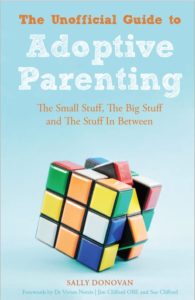
Sally's latest book, The Unofficial Guide to Therapeutic Parenting, The Teen Years will be published in 2019.
While the parenting demanded of my friends gradually reduces, the parenting demanded of me sticks doggedly at MAXIMUM. Since last week I am home schooling our youngest child. It is GCSE year so my head is full with syllabuses, exam centres, quadratic equations and cellular division, but more than that, a refocus on human connection and mental health and wellbeing. It turns out that’s more important than any GCSE. My plans to get a job, to make a life that is not dominated by developmental trauma are again put on hold. Mental health worker, educator, therapist, parent, shapeshifter - I continue to fill gaping holes left by you, The State.
This morning, on the way home from dropping our daughter to a suitable, therapeutic education provision, which we fund, I drove through a 20 mph speed limit at life-threatening 22 mph. A newly erected display flashed a red 22 and a disapproving sad face emoji at me, like a giant wagging finger. I showed it both my middle fingers and felt a tiny bit better. I’ve had it with you, your obsession with systems, numbers and uniforms and attendance and grades and thresholds that can never be met and your reluctance to deal with the messy human stuff your citizens are wading through.
I watch another documentary about missing people and county lines gangs, and it is too close to home. These are my living nightmares. I Google the local news to check my loved one hasn’t been named as a stab victim in the latest gang-related scumbag stabbing spree. He hasn’t, but I still haven’t heard from him. And yet I get told ‘this is typical teenage behaviour’ (another middle-finger moment). It really is beyond parody. At least you, State, have been more understanding of us than you have been of some of my friends, who have been investigated and blamed for the harvest of what was sown way before they entered their children’s lives. Vast parts of you resolutely refuse to understand childhood trauma. Those of us living on the front line don’t have that luxury. We know all about childhood trauma, from the tips of our nerve endings to the weight of our groaning bookshelves.
The question for National Adoption Week is I’m guessing ‘would you do it again?’
I hate that question. Once you’ve given your heart away, there’s no answering it constructively. All I can say is, I wish we’d entered into adoption, with the due diligence with which we enter into other life-changing parts of our lives. We didn’t think through the ‘what ifs’. What if one of us can never earn a wage again? What if one or both children can’t cope with school? What if it becomes clear one or both children require extensive therapeutic help? What if all those nightmares that happen to other people happen to us? It didn’t dawn on us that these were even possibilities. We should have been much better informed and shopped around for the best guarantees of future support. What we did was walk out of County Hall with two children and all the risk. It was an unfair contract. Right now it feels more like a mugging.
I still believe adoption and other forms of permanence, when properly conducted and supported by all relevant arms of you, The State, are of incredible benefit to society.
I believe adoption has benefited our children, incredibly.
You say you value these benefits and those who come forward to offer them. If you do as much as you say you do, then why not match your words with commitment? Why not guarantee adopters that if the ‘what ifs’ come to pass, you will be right there to catch them, safety nets in full working order, no ifs no buts.
‘Deeds not words’ is what I say to my children. Until then I, and many like me will continue to take the strain, because we are caught between the love for our children and you, the disappeared.
We have no choice but to battle on and bear the emotional and financial costs of this one-sided deal, but I will continue to flick the finger whenever you finger-wag a sad-face speed emoji at me for the smallest transgression. It’s a pathetic gesture, but it’s all I have left right now. I’m doing way above what should ever have been reasonably expected of me.
I wish I could say the same for you.
Sally Donovan OBE is an adoptive parent and author of No Matter What (2013), The Unofficial Guide to Adoptive Parenting (2014) and Billy Bramble and the Great Big Cook Off (2016). Her latest book, The Unofficial Guide to Therapeutic Parenting, The Teen Years will be published in 2019.
Web & blog www.sallydonovan.co.uk | Twitter @sallydwrites
Saturday - An adoptive parent on the beautiful bond and simmering tensions between adopted siblings
I come from a very big family. I am one of five children and I’ve always found being part of a sibling group very important. I probably wanted more than two but that wasn’t very practical, and my husband put his foot down, so for us it was always going to be two.
I can’t imagine having only one child, but that’s a very personal question. We were aware that there were often sibling groups and they were often waiting to be matched – and that siblings waited longer for placements. We knew that our children had experienced a level of disruption so we thought that for them being together would be hugely beneficial to them.
We thought how valuable it would be for them to still have each other, even when everything in their life changed around them.
We knew that it would be harder to parent siblings as opposed to one child, but we weren’t prepared for how hard it would be to manage their different needs; their needs as individuals, their needs as a sibling group; then of course managing our collective needs as a family, then us as parents and individuals.
We didn’t receive any training at all in the run up to the placement. It was quite different in those days.
The challenge was to spend enough time with each one of the girls so that we built up their confidence in us, without accidentally triggering the trauma of one getting more attention than the other. It took a lot of planning; we would have to plan for one child to be out, in order to spend individual time with the other.
We were right to adopt them together as greatest benefit of adopted siblings turned out to be the fact that they had each other.
I asked my daughter how she felt about it recently, and she said even though she’s a pain, she really loves her sister and she’s really glad that they were placed together.
It was really nice to hear that because we were - seven or eight years ago - wondering if we had made a big mistake in placing them together. They didn’t seem to be able to grow as individuals, they seemed to be holding each other back.
Now, at the end of the day, I think they’ve benefitted more than they lost. They have benefitted more, even though it’s sometimes been harder for us.
Hopefully going into adulthood, they will still be able to be friends and enjoy each other’s company.
Even though their early experiences have been slightly different for each of them, they can still share those memories and experiences.
The advice I have for adopters who are thinking about taking on a sibling placement, is to make sure you carve out individual time for each child, to encourage them to do different things as far as friendships and hobbies are concerned.
We would give each child individual time throughout the day. Not terribly long, just five minutes, ten minutes, twenty minutes here and there. We just muddled through, relied on our support system, tried to find other adoptive parents who were like-minded and understood.
PAC-UK's Advice Line is available on 020 7284 5879 (London office) and 0113 230 2100 (Leeds office) and is staffed by qualified and experienced PAC-UK counsellors who can provide advice and information on all aspects of adoption and other forms of permanent care. It is also the first port of call for enquiries about PAC-UK counselling and our other therapeutic services.
Sunday - Adoptive Dad, Gary on 'The challenge of parenting damaged children: in praise of emotional resilience'
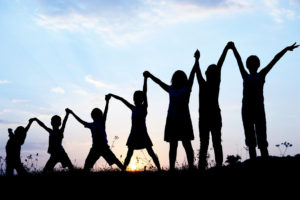
Gary is a therapeutic parent and teacher, crusading for improvements in LAC education and post adoption care.
I have two adopted children, aged 11 and 7. They were both taken into care at birth, only had one foster placement and were adopted at 18 months old.
They’re not biologically related and their earliest experiences of the care system were polar opposites. The eldest lived in a chaotic environment with a lot of human traffic. The youngest had his birth mother present for the first nine months (before she made the decision to put him up for adoption) and he was able to cope with her departure with the help of various maternal figures that remained in the placement.
My eldest son is now a violent, aggressive, abusive adolescent. He has no interest in learning and is currently without a school place. His anti-social displays are no longer confined to the house. Shops, parks, cafes - he will shout and swear and cause a scene wherever he chooses.
There are reasons for this: he first experienced loss at two-days-old when he was removed from his birth mother and joined another baby in his foster carer’s home. His second traumatic loss came a few months later when the baby that he shared a room with was adopted and disappeared forever.
Add to this confusing melee of babies the three toddler grandchildren of the foster carers and it’s easy to see why my son struggles to form trusting relationships - even with us, his adopted parents - and we’ve had him over ten years!
He was never given the one-to-one care and attention that babies need; he didn’t have a primary care giver because there were simply too many babies competing for attention.
Now, as an adolescent, his need to be in control is his driving force. It’s safer for him to build a wall and push people away: trusting people leads to loss and emotional trauma, so he fights us on every issue, whether it is personal hygiene, food, learning or clothes.
He operates in fight, flight, freeze, flop mode and is rarely relaxed enough to access the higher order thinking areas of the brain, which is limiting his capacity to learn and use logic – it is easier just to say “no” or hit out.
He is different to his younger brother, who has such a kind and gentle disposition. Popular and well-liked at school by both his peers and the staff.
But even he’s witnessed domestic abuse on a daily basis, perpetrated by his older brother.
Adoption has cost me at lot. We divorced four years ago. The boys live with their adoptive mother and I see them at weekends, school holidays and one night in the week.
But my children call me Dad, they carry my name and they are my family - my reason to keep going whilst I try to find a way through the grown up troubles I’m dealing with - work, a place to live, a stable financial future.
I’ll keep going because I have to be there for my sons.
You need emotional resilience to be an adopter. It’s a bumpy road at times. You keep praying for a long, straight bit with lots of service stations to get some rest at. Often, you find one, but they’re out of coffee and the toilets are closed for cleaning, but eventually you know you’ll pull over and everything will be fine.
For a bit. But for now, you’ll all have to get back in the car and continue the journey.
Gary is a therapeutic parent and teacher, crusading for improvements in LAC education and post adoption care.
Twitter @kidsoutofprison
PAC-UK would like to thank all of our guest bloggers and contributors for sharing their stories.
As stated at the top of this page, We invite you to discuss these blogs via PAC-UK's Twitter profile and ask you to tag @PACUKadoption in to your posts and include the National Adoption Week hashtag #SupportAdoption





